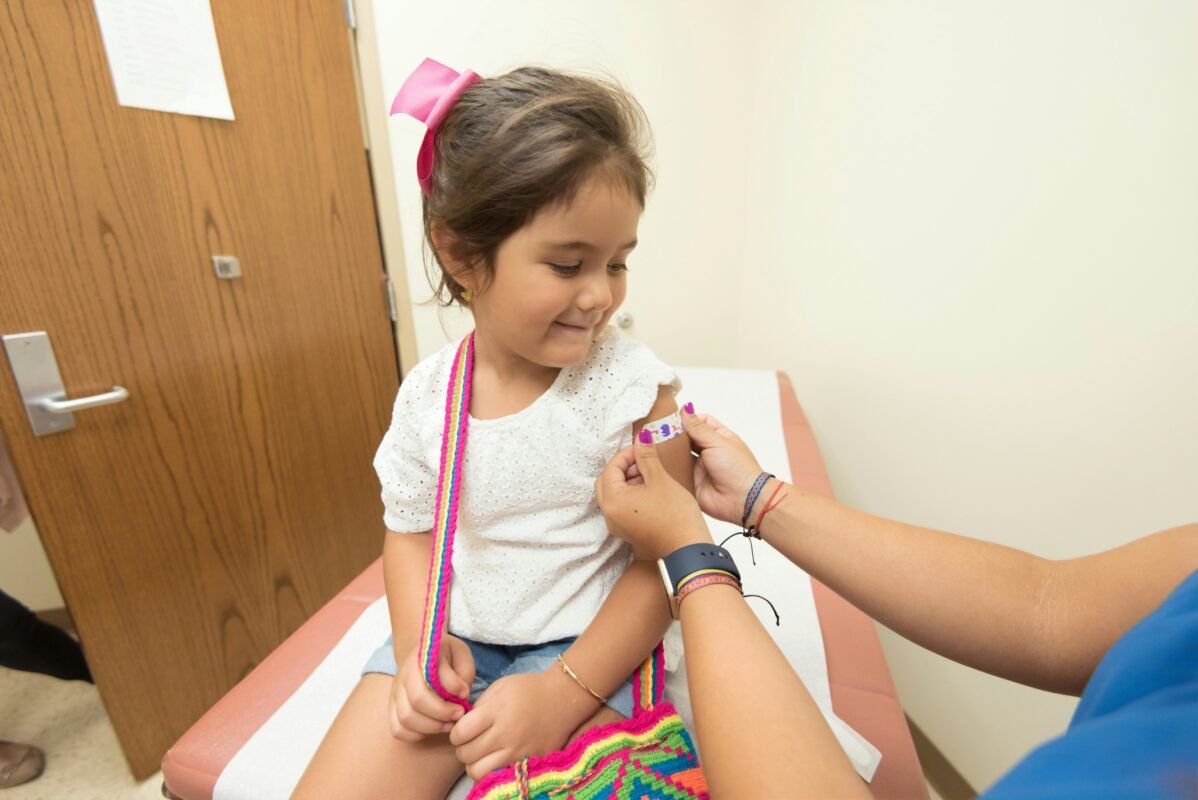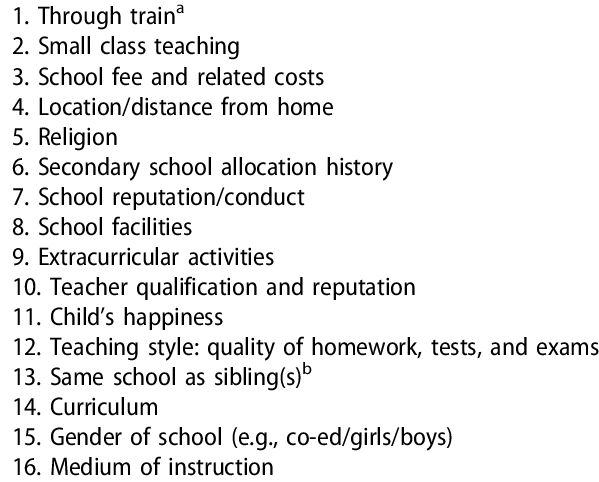Parenthood is a transformative journey filled with joy, challenges, and countless decisions. Among the most critical are those regarding healthcare and education, pillars that lay the foundation for a child’s well-being and future success. In this guide, we will embark on an in-depth exploration of these systems, providing invaluable insights and guidance to help parents navigate the complexities with confidence and clarity.
Healthcare Systems

Understanding Healthcare Options
In today’s world, parents are faced with a myriad of healthcare options, each with its own set of advantages and considerations. Public healthcare systems, such as government-funded programs or universal healthcare initiatives, offer accessible and often cost-effective care for families. However, these systems may have limitations in terms of coverage or accessibility, depending on the country or region.
On the other hand, private insurance options provide flexibility and choice, allowing families to select plans tailored to their specific needs and preferences. While private insurance may offer comprehensive coverage and access to a wider network of providers, it often comes with higher premiums and out-of-pocket costs.
Additionally, specialized healthcare services for children, such as pediatricians and pediatric specialists, play a crucial role in ensuring the well-being of young patients. These professionals are trained to address the unique medical needs and developmental stages of children, offering specialized care and support.
Accessing Essential Services
Accessing essential healthcare services is paramount for maintaining the health and well-being of children. Regular check-ups, vaccinations, and screenings are fundamental components of preventive care, helping to identify and address potential health concerns early on.
Finding a trusted pediatrician or family doctor is key to managing your child’s healthcare needs effectively. These healthcare providers serve as partners in your child’s health journey, offering guidance, support, and personalized care tailored to their individual needs.
Moreover, managing health records and insurance information is essential for ensuring seamless access to care. Keeping organized records of medical history, immunizations, and insurance coverage facilitates communication with healthcare providers and streamlines the process of scheduling appointments and accessing services.
In summary, understanding the various healthcare options available, accessing essential services, and maintaining organized health records are crucial components of navigating the healthcare system as a parent. By proactively managing your child’s healthcare needs, you can help ensure their continued health and well-being.
Education Systems

Early Childhood Education
Early childhood education lays the foundation for a child’s cognitive, social, and emotional development, shaping their future academic success and overall well-being. Parents are faced with a multitude of options when it comes to early childhood education, including daycare centers, preschools, and early intervention programs.
Daycare centers provide childcare services for infants, toddlers, and young children, offering a safe and nurturing environment for children while their parents are at work or otherwise occupied. These centers may offer educational activities, socialization opportunities, and basic care services, depending on the facility.
Preschools, on the other hand, focus on providing early education and school readiness skills to children aged three to five years old. These programs often incorporate structured learning activities, such as pre-mathematics, pre-literacy, and social-emotional development, in addition to play-based learning experiences.
Early intervention programs are designed to support children with developmental delays or disabilities, providing specialized services and therapies to address their unique needs. These programs may include speech therapy, occupational therapy, physical therapy, and behavioral interventions, among others.
Overall, early childhood education plays a critical role in laying the foundation for a child’s future success, and parents must carefully consider their options to ensure their child receives the support and resources they need during these formative years.
Primary and Secondary Education
As children transition into primary and secondary education, parents are faced with additional decisions regarding their schooling options. The education system varies significantly from country to country, with differences in structure, curriculum, and funding.
In many countries, the primary education system consists of elementary or primary schools, typically serving children from kindergarten through fifth or sixth grade. Secondary education follows, comprising middle schools or junior high schools for grades six through eight, and high schools for grades nine through twelve.
Public schools are funded and operated by the government, offering free education to all students within a designated school district. These schools are required to adhere to state or national curriculum standards and may offer a diverse range of programs and services to meet the needs of their students.
Private schools, on the other hand, are independently funded and operated, often charging tuition fees in exchange for specialized programs, smaller class sizes, and enhanced facilities. While private schools offer greater autonomy and flexibility in curriculum development and teaching methods, they may not be accessible to all families due to financial constraints.
Charter schools represent a hybrid model of education, operating independently of the traditional public school system but receiving public funding and oversight. These schools often focus on specific educational philosophies or themes, such as STEM education, arts integration, or Montessori-inspired learning.
Overall, parents must carefully evaluate their options when it comes to primary and secondary education, considering factors such as school quality, academic performance, extracurricular offerings, and alignment with their child’s individual needs and learning style.
Special Education Services
For children with disabilities or special needs, access to quality special education services is essential for ensuring their academic success and social-emotional development. Special education services are designed to provide individualized support and accommodations to address the unique needs of each child, enabling them to participate fully in the educational experience.
One of the cornerstone components of special education services is the Individualized Education Program (IEP), a legally binding document that outlines the child’s learning goals, support services, and accommodations. The IEP is developed collaboratively by a team of educators, parents, and other relevant stakeholders, ensuring that the child’s educational needs are effectively addressed.
In addition to the IEP, children with disabilities may also receive related services such as speech therapy, occupational therapy, physical therapy, and behavioral interventions, depending on their individual needs and eligibility criteria. These services are provided by qualified professionals who work closely with the child and their family to support their progress and development.
Overall, special education services play a crucial role in ensuring that children with disabilities have access to the resources, support, and accommodations they need to thrive in an educational setting. Parents must advocate for their child’s rights and work collaboratively with educators to ensure that their child’s educational needs are met effectively.
School Selection Process

Researching Schools
When it comes to selecting a school for their child, parents are faced with a multitude of options, each with its own set of strengths, weaknesses, and considerations. Conducting thorough research is essential for making an informed decision and finding the best fit for your child’s needs and preferences.
One of the first steps in researching schools is to gather information about the academic programs, extracurricular offerings, and school culture. This may involve visiting school websites, attending informational sessions or open houses, and reading reviews or testimonials from current or former students and parents.
In addition to academic performance, parents should also consider factors such as class size, teacher qualifications, and student-to-teacher ratios when evaluating schools. A supportive and nurturing learning environment, strong parental involvement, and access to resources and support services are also important considerations.
Furthermore, parents should consider the proximity and accessibility of the school, as well as transportation options available for their child. While some families may prefer a school within walking distance of their home, others may prioritize access to specialized programs or extracurricular activities, necessitating a longer commute.
Overall, researching schools thoroughly and gathering as much information as possible is essential for making an informed decision about your child’s education. By considering factors such as academic performance, school culture, and accessibility, parents can find the best fit for their child’s individual needs and preferences.
Visiting Schools
Once parents have narrowed down their list of potential schools, scheduling visits and tours is an important next step in the school selection process. School visits provide an opportunity to see the learning environment firsthand, meet with school staff and administrators, and ask questions about the school’s programs and policies.
During school visits, parents should pay close attention to the overall atmosphere and culture of the school, as well as the condition of the facilities and classrooms. They should also observe interactions between students and teachers, as well as between students themselves, to gauge the level of engagement and supportiveness within the school community.
Additionally, parents should come prepared with a list of questions to ask during the tour, covering topics such as academic programs, extracurricular offerings, student support services, and parental involvement opportunities. Asking thoughtful and probing questions can provide valuable insights into the school’s strengths and areas for improvement.
Finally, parents should take note of their impressions and observations during the school visit, considering factors such as the friendliness of the staff, the enthusiasm of the students, and the overall feeling of inclusivity and acceptance within the school community. These intangible factors can play a significant role in determining whether a school is the right fit for your child.
Overall, scheduling school visits and tours is an essential step in the school selection process, providing parents with valuable insights and firsthand experiences to inform their decision-making. By observing the learning environment, meeting with school staff, and asking questions, parents can gain a better understanding of what each school has to offer and make an informed decision about their child’s education.
Making Informed Decisions
After conducting thorough research and visiting potential schools, parents are faced with the task of making an informed decision about their child’s education. This decision should be based on a careful consideration of factors such as academic performance, school culture, extracurricular offerings, and accessibility, as well as the individual needs and preferences of the child.
When evaluating schools, parents should consider the academic performance and reputation of the school, as well as any specialized programs or initiatives that may align with their child’s interests and goals. They should also consider the school’s approach to teaching and learning, as well as its disciplinary policies and practices.
Additionally, parents should take into account the level of parental involvement and support within the school community, as well as opportunities for collaboration and communication between parents and teachers. A strong partnership between home and school is essential for supporting student success and fostering a positive learning environment.
Ultimately, parents should trust their instincts and prioritize the well-being and happiness of their child when making decisions about their education. By considering factors such as academic performance, school culture, and parental involvement, parents can find the best fit for their child’s individual needs and set them on a path to success.
Parental Involvement

Advocating for Your Child
Parental advocacy plays a crucial role in ensuring that children receive the support and resources they need to thrive in an educational setting. Whether advocating for accommodations for a child with special needs or addressing concerns about academic performance or disciplinary issues, parents are their child’s strongest advocates and allies.
One of the most important aspects of parental advocacy is effective communication with teachers, administrators, and other relevant stakeholders. By maintaining open lines of communication and expressing concerns or questions in a respectful and constructive manner, parents can work collaboratively with school staff to address issues and find solutions.
Additionally, parents should familiarize themselves with their child’s rights and entitlements under relevant laws and regulations, such as the Individuals with Disabilities Education Act (IDEA) or Section 504 of the Rehabilitation Act. Understanding these laws can empower parents to advocate effectively for their child’s needs and ensure that they receive appropriate support and accommodations.
Furthermore, parents should actively participate in the educational planning process, including attending Individualized Education Program (IEP) meetings, parent-teacher conferences, and school events. By being actively engaged in their child’s education, parents can build strong partnerships with school staff and contribute to their child’s academic success and well-being.
Overall, parental advocacy is essential for ensuring that children receive the support and resources they need to thrive in an educational setting. By maintaining open lines of communication, understanding their child’s rights, and actively participating in the educational planning process, parents can advocate effectively for their child’s needs and contribute to their success in school.
Communicating with Educators
Effective communication between parents and educators is essential for supporting student success and fostering a positive learning environment. Whether discussing academic progress, behavioral concerns, or other issues impacting a child’s education, open and respectful communication is key to building strong partnerships between home and school.
One of the most important aspects of communication between parents and educators is establishing regular channels for communication, such as parent-teacher conferences, email, phone calls, or online communication platforms. By maintaining open lines of communication, parents and educators can stay informed about their child’s progress and address any concerns or questions in a timely manner.
Additionally, parents should approach communication with educators with a spirit of collaboration and partnership, recognizing that both parties share a common goal of supporting the child’s academic success and well-being. This may involve actively listening to the perspectives and insights of educators, as well as sharing relevant information about the child’s strengths, challenges, and interests.
Furthermore, parents should be proactive in seeking out information and resources to support their child’s education, such as educational materials, tutoring services, or community programs. By taking an active role in their child’s education, parents can demonstrate their commitment to their child’s success and contribute to a positive learning environment.
Overall, effective communication between parents and educators is essential for supporting student success and fostering a collaborative partnership between home and school. By maintaining open lines of communication, approaching discussions with a spirit of collaboration, and seeking out relevant resources and support, parents can contribute to their child’s academic success and well-being.
Engaging in School Activities
Parental involvement in school activities plays a crucial role in supporting student success and fostering a sense of community within the school environment. Whether volunteering in the classroom, attending school events, or participating in parent-teacher organizations, parents can make valuable contributions to their child’s education and overall school experience.
One of the most common ways parents can get involved in school activities is by volunteering in the classroom or school community. This may involve assisting teachers with classroom activities, chaperoning field trips, or organizing and participating in school events and fundraisers. By volunteering their time and expertise, parents can support teachers and staff, enhance the learning environment, and build connections with other parents and students.
Additionally, parents can participate in parent-teacher organizations (PTOs) or parent-teacher associations (PTAs), which serve as forums for parents to collaborate with school staff, discuss relevant issues, and plan activities and events for the school community. These organizations play an important role in fostering communication and cooperation between parents and educators and promoting a sense of ownership and investment in the school community.
Furthermore, attending parent-teacher conferences and school events is another important way for parents to engage in their child’s education and build connections with school staff and other parents. These opportunities provide valuable insights into the child’s academic progress and well-being, as well as a forum for discussing concerns, questions, and goals with educators.
Overall, parental involvement in school activities is essential for supporting student success, fostering a sense of community, and building strong partnerships between home and school. By volunteering in the classroom, participating in parent-teacher organizations, and attending school events, parents can make valuable contributions to their child’s education and overall school experience.
Let’s Wrap It Up
Parenthood is a journey filled with love, challenges, and countless decisions, among the most important of which are those related to healthcare and education. By understanding the intricacies of healthcare systems, accessing essential services, and advocating for their child’s well-being, parents can ensure their child’s health and wellness are prioritized from an early age.
Similarly, navigating the education system requires careful consideration of options, researching schools, and actively engaging in the school selection process. By prioritizing their child’s educational needs, advocating for their rights, and fostering strong partnerships with educators, parents can support their child’s academic success and overall well-being.
Ultimately, by embracing the responsibilities and opportunities of parenthood, parents can create a nurturing and supportive environment in which their child can thrive and reach their full potential. Though the journey may be challenging at times, the rewards of parenthood are immeasurable, and with dedication, perseverance, and love, parents can guide their children through every stage of life with confidence and grace.









